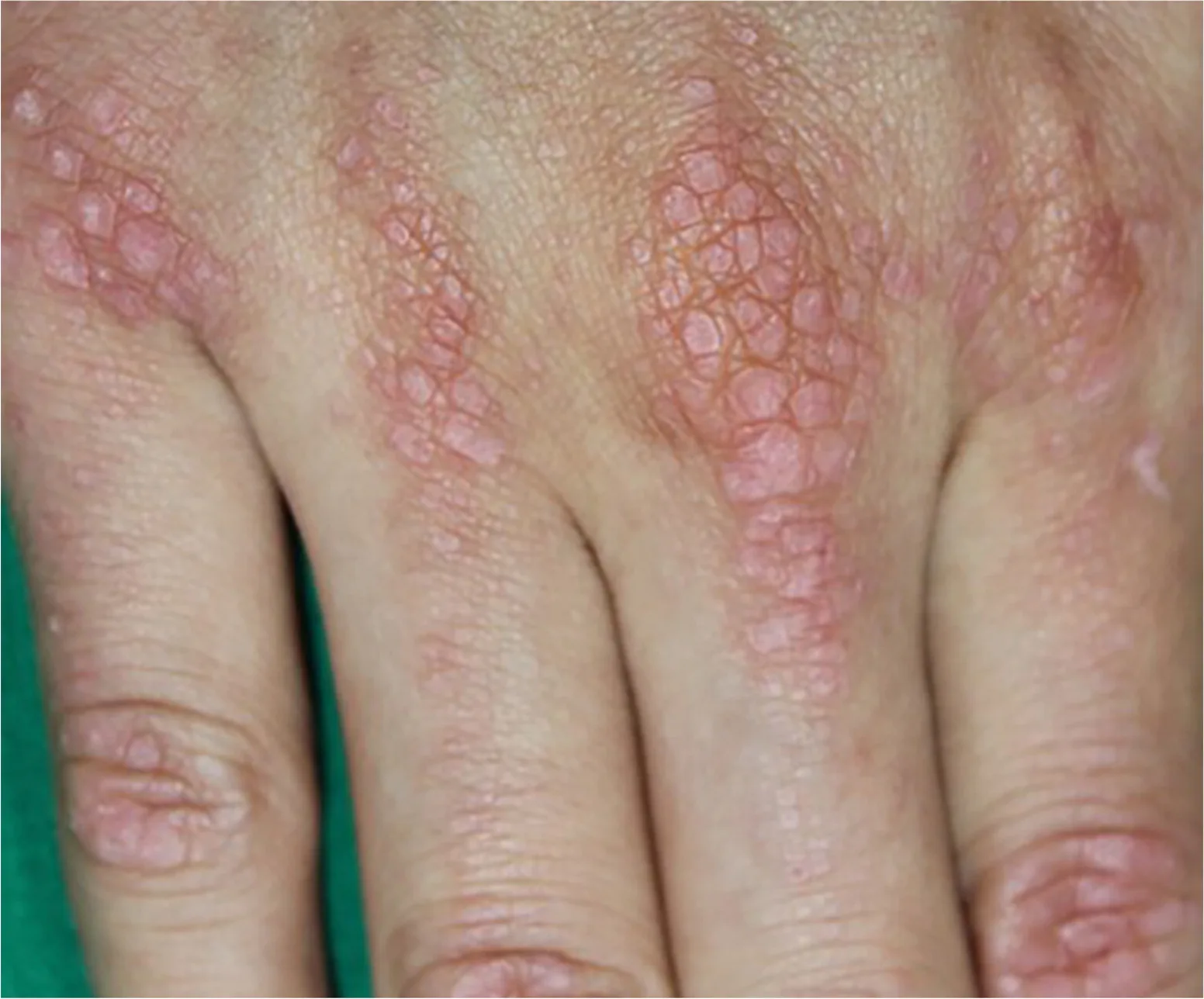Dermatomyositis Treatment
What is Dermatomyositis?
Dermatomyositis is a rare and complex autoimmune disease that primarily affects the muscles and skin. It is characterized by chronic inflammation, leading to progressive muscle weakness and a distinctive skin rash. The condition can occur in both adults and children, often presenting differently in each age group.
What Causes Dermatomyositis?
Dermatomyositis is a complex autoimmune disease whose exact cause remains unclear. However, it is believed to result from a combination of genetic, environmental, and immune system factors. As an autoimmune disorder, the immune system mistakenly attacks the body's own tissues, specifically targeting muscle fibers and skin cells, leading to inflammation and damage. Genetic predisposition plays a role, as certain genes related to the immune system may make individuals more susceptible to developing dermatomyositis. Environmental triggers such as infections, exposure to certain medications, and UV radiation can also contribute to the onset or exacerbation of the disease in genetically predisposed individuals.
Additionally, dermatomyositis can sometimes be associated with other autoimmune diseases like lupus or rheumatoid arthritis and may also be linked to certain types of cancer, particularly in adults. This association, known as paraneoplastic syndrome, occurs when the immune system's response to cancer cells triggers dermatomyositis. Dysfunction in the immune system is central to the disease, leading to the production of autoantibodies that attack and damage muscle and skin tissues, resulting in chronic inflammation and characteristic symptoms. At Millennium Physicians, our expert team is dedicated to providing comprehensive care and support for individuals with dermatomyositis, utilizing advanced diagnostic tools and personalized treatment plans to manage symptoms and improve quality of life. If you or a loved one are experiencing symptoms of dermatomyositis, contact us today to schedule a consultation and learn more about our specialized care options.

Symptoms of Dermatomyositis
Dermatomyositis is characterized by a range of symptoms affecting both the muscles and skin. These symptoms can vary in severity and may develop gradually or suddenly. Here are the primary symptoms associated with dermatomyositis:
1. Muscle Weakness
- Proximal Muscle Weakness: The most common symptom is progressive muscle weakness, primarily affecting the muscles closest to the trunk, such as those in the hips, thighs, shoulders, upper arms, and neck.
- Difficulty with Daily Activities: This weakness can make it challenging to perform everyday tasks, such as climbing stairs, lifting objects, or rising from a seated position.
2. Skin Rash
- Heliotrope Rash: A distinctive violet or dusky red rash that appears on the eyelids and across the cheeks and nose, resembling a raccoon mask.
- Gottron's Papules: Raised, scaly bumps that occur over the knuckles, elbows, and knees.
- Other Rashes: Red or purple rashes may also appear on the face, neck, shoulders, upper chest, and back, often in a V-shaped or shawl-like pattern. The rashes can be itchy and may become more pronounced with sun exposure.
3. Other Symptoms
- Muscle Pain and Tenderness: Some individuals experience muscle pain and tenderness in addition to weakness.
- Difficulty Swallowing: Muscle weakness can affect the esophagus, leading to dysphagia (difficulty swallowing).
- Fatigue: Persistent tiredness and lack of energy are common.
- Respiratory Issues: In severe cases, muscle weakness can extend to the respiratory muscles, causing breathing difficulties.
- Calcinosis: In some cases, calcium deposits can form under the skin, causing hard lumps.
Key Features of Dermatomyositis
- Muscle Weakness: Typically begins in the proximal muscles, such as those in the hips, thighs, shoulders, and neck. This weakness can make everyday activities, like climbing stairs or lifting objects, challenging.
- Skin Rash: A hallmark of dermatomyositis, the rash is often reddish or purplish and can appear on the face, knuckles, neck, shoulders, upper chest, and back. It is sometimes accompanied by swelling and itching.
- Other Symptoms: Patients may experience difficulty swallowing, muscle pain, fatigue, and lung issues due to muscle involvement in the respiratory system.
Treatment Options
Frequently Asked Questions About Dermatomyositis
Dermatomyositis can affect both adults and children, though it is more commonly diagnosed in adults aged 40-60 and in children aged 5-15. Women are more likely to develop dermatomyositis than men. Genetic factors, environmental triggers, and certain infections can increase the risk.
7 Convenient Houston Locations
Bellaire
4747 Bellaire Blvd. Ste. 150
Bellaire, TX 77401
Phone: (281) 315-8130
Fax: (281) 315-8131
Hours: Monday – Friday 8:30 AM – 5:00 PM
Cleveland
314 South San Jacinto Ave
Cleveland, TX 77327
Phone: (936) 571-0508
Fax: (281) 763-2706
Hours: Monday – Friday 8:30 AM – 5:00 PM
Conroe
506 Medical Center Blvd. Ste. 100
Conroe, TX 77304
Phone: (936)-571-0508
Fax: (281) 763-2706
Hours: Monday – Friday 8:30 AM – 5:00 PM
Cypress
27700 Northwest Fwy. Ste. 580
Cypress, TX 77433
Phone (346) 345-2400
Fax (346) 345-2401
Hours: Monday - Friday 8:30 AM - 4:00 PM
Houston
522 Timberdale Ln.Houston, TX 77090
Phone: (281) 315-8130
Fax: (281) 315-8131
Hours: Monday – Friday 8:30 AM – 5:00 PM
Huntsville
130 Medical Center Pkwy. Ste. 5
Huntsville, TX 77340
Phone: (936) 571-0508
Fax: (281) 763-2706
Hours: Monday – Friday 8:30 AM – 5:00 PM
The Woodlands
9319 Pinecroft Dr. Ste. 100 & 210
The Woodlands, TX 77380
Phone: (346) 345-2400
Fax: (346) 345-2401
Hours: Monday - Friday 8:30 AM - 4:00 PM
